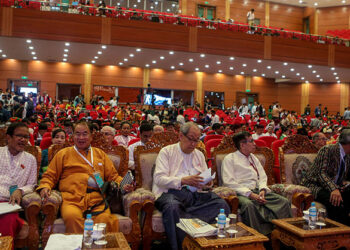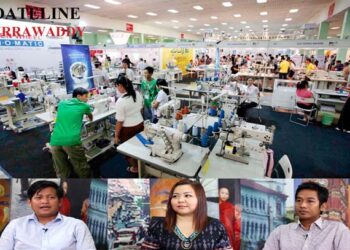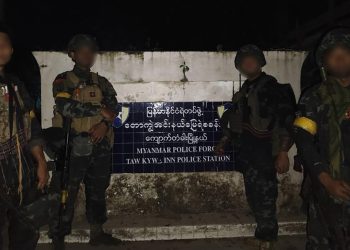Zipporah Sein: vice chairperson of Karen National Union
Since it is the first conference, we have high hopes that peace and a federal Union can be built. We have yet to deepen trust with the government mainly because there are still clashes. Much needs to be done before trust can be forged.
I want the peace conference to be all-inclusive and I’m sorry that three groups—the Myanmar National Democratic Alliance Army, the Ta’ang National Liberation Army and the Arakan Army—are not included. Everyone anticipates peace so we must continue our efforts.
Ko Ko Gyi: 88 Generation Peace and Open Society
The peace process is a national process and we can’t expect the government to finish it during its term. Peace is the process of the country, not the process of a government.
The results might depend on the extent of inclusion and patience in discussions. Civil war broke out because of politics and it persists because of a lack of trust. If nationwide peace is to be built, everyone should avoid terms, usages and behaviors that could cause misunderstandings, and nurture a culture of forgiveness.
In successive periods in the past, peace was only between the government and the ethnic armed groups—the people were not informed at all about the peace process. Only when all people can actively take part will peace be complete and sustainable.
Kwel Htoo Win: general secretary of the Karen National Union
The conference is the first step towards long-awaited political dialogue. The objective of the Union Peace Conference is to start an inclusive peace process for all. Only eight ethnic armed groups attended the first national-level peace conference, but now 17 ethnic armed groups are attending. And eight non-signatories to the Nationwide Ceasefire Agreement—seven members of the UNFC and the Mongla Group—attended the framework review. There has been progress.
Our entire country wants peace. All of the groups involved in the conflict want peace. And concerned stakeholders have to find an answer. Previously, violence was used to find the answer. If a solution is sought through political dialogue now, this is a good step for the people. And we will try with absolute faith.
La Phai Seng Raw: Kachin social worker
The 1947 Panglong Conference made very encouraging pledges [to ethnic groups]. Because those pledges weren’t fulfilled, we had a civil war. If this conference can guarantee equality, which we could not achieve in the past, there will be greater opportunities for ethnicities to build the Union together peacefully and we won’t need to send our offspring to the frontline.
Mai Nleeng Kee: central committee member of the Chin National Front
We have high expectations. We want to build a federal Union and end the civil war. Mainly, I am desirous of internal peace. Peace concerns women. Every mother wants peace. The entire nation want peace. The key to achieving peace is to end the civil war and ensure that no one is displaced by war.
Khin Ma Ma Myo: director of the Myanmar Institute of Gender Studies
Burma will have a peaceful future only when the democratic federal Union can be built. I came here because I think it is the initial and the most appropriate step towards a democratic federal Union, which the people want.
Salai Lian H. Sakhong: ethnic Chin scholar
The Panglong Agreement still can’t be fully implemented. As a result, we have faced 60 years of civil war. This conference will be the first step toward ending civil war and achieving the unfulfilled goals set by Gen Aung San and ethnic leaders in 1947. I am an ethnic Chin and the Chin people were signatories to the 1947 Panglong Agreement, which formed the Union. We will never betray the Union, but always be loyal to it. We are trying to rebuild the Union with the Panglong Spirit. We want to have a peace that is built and shared among all people, otherwise it will not last long.














